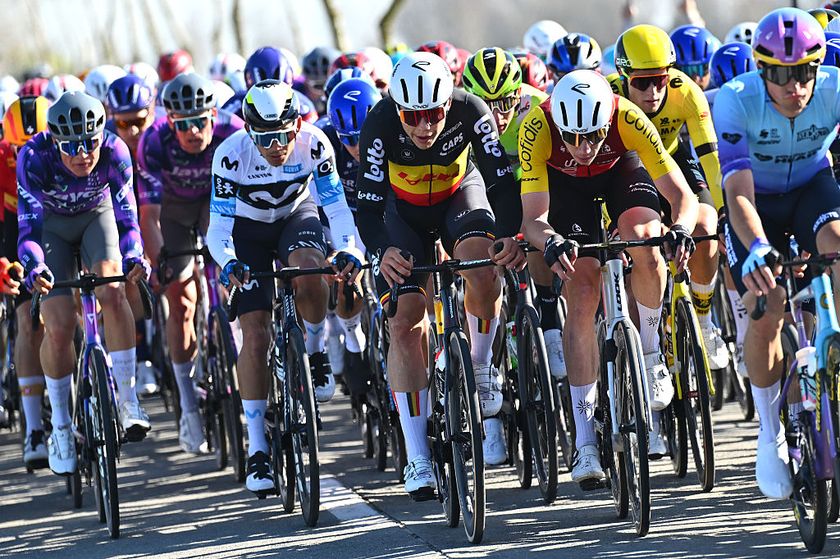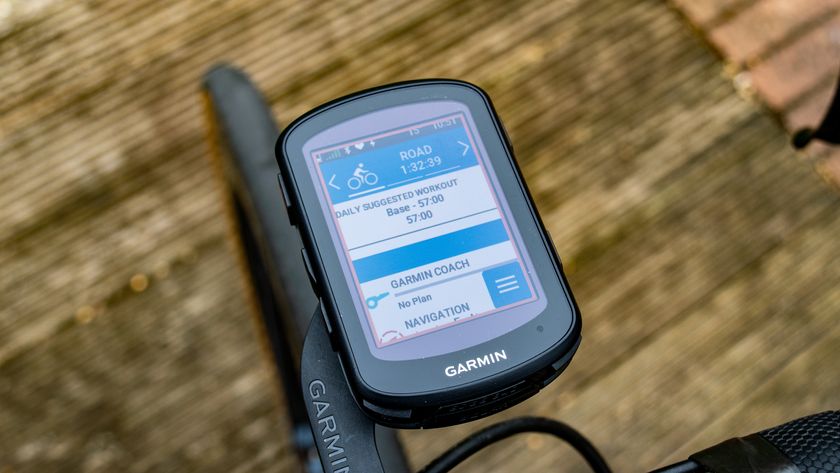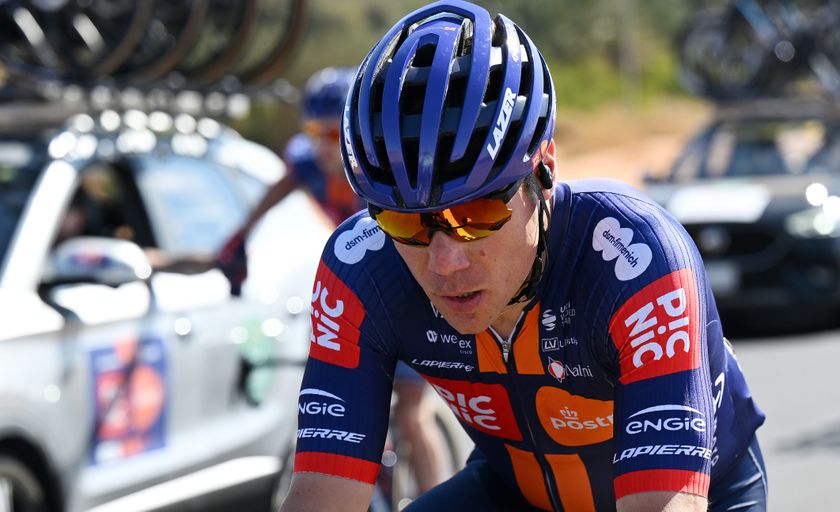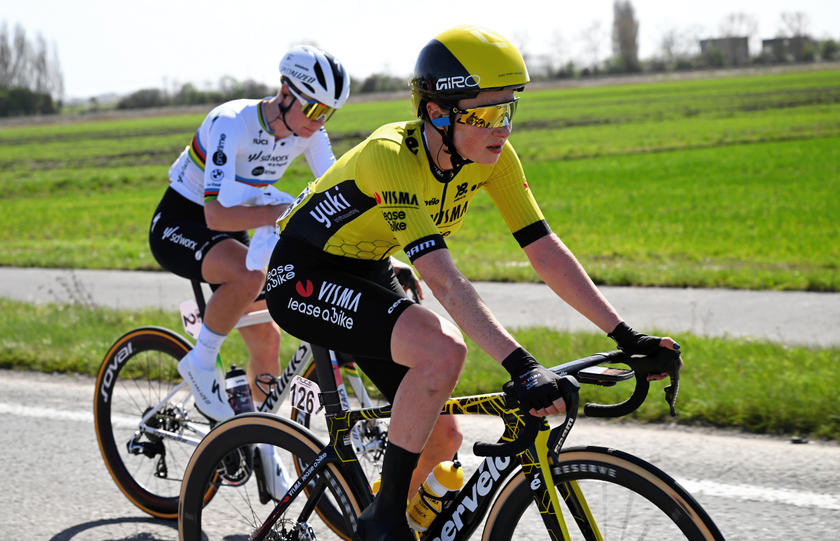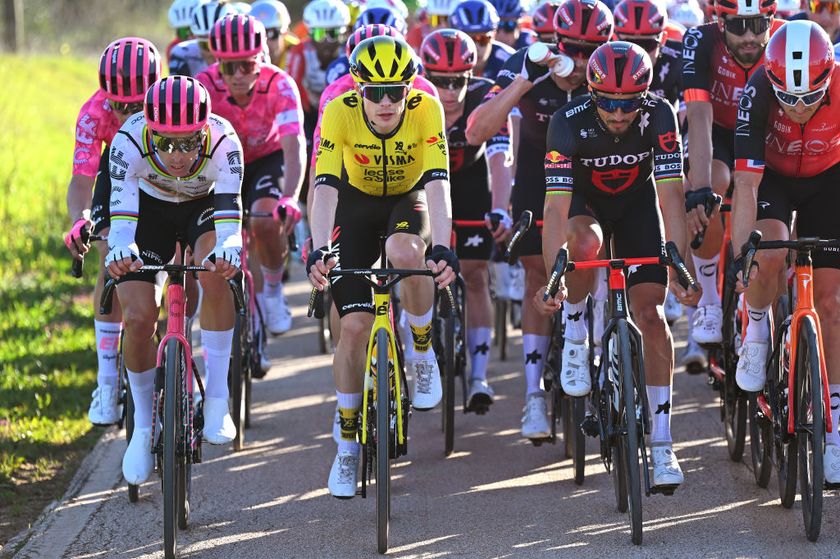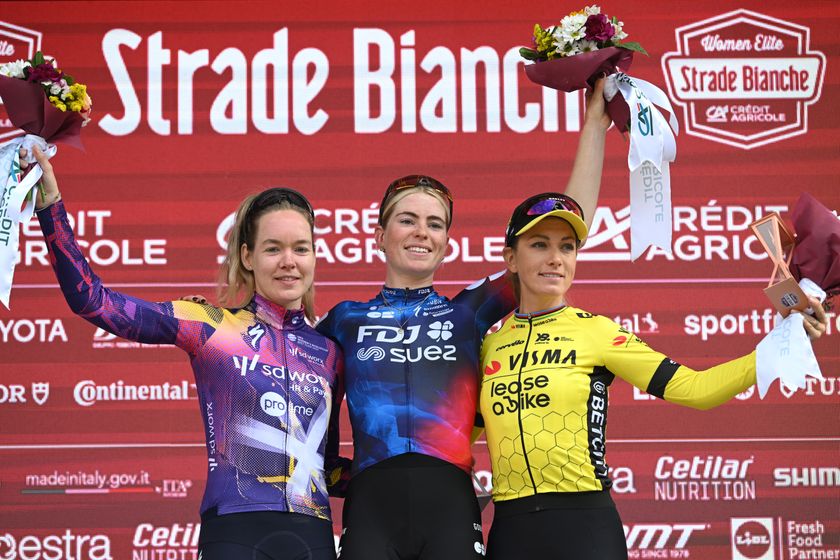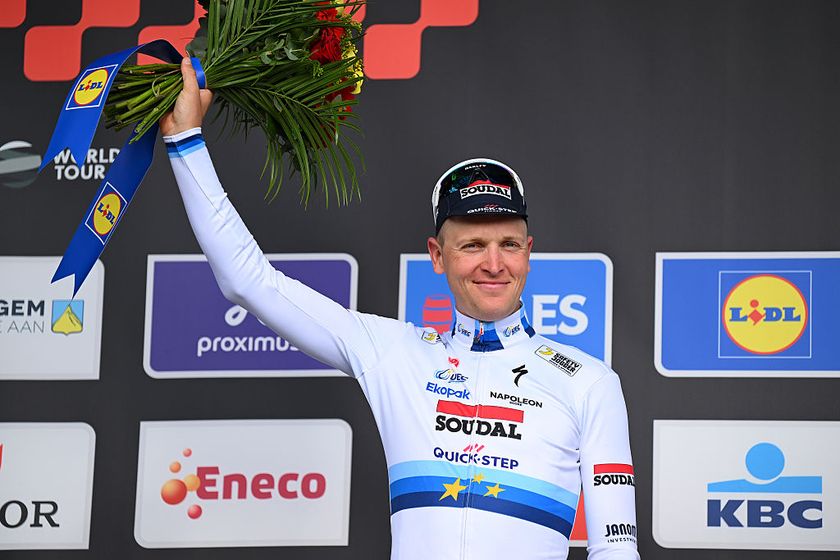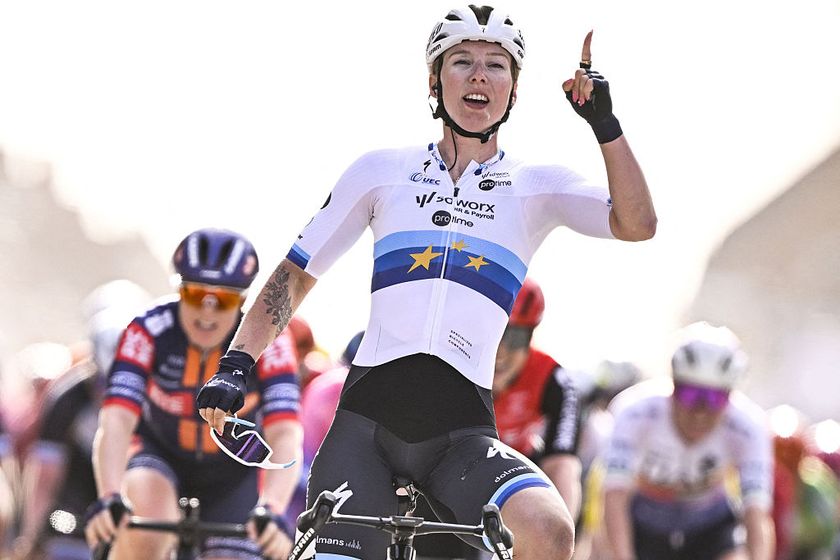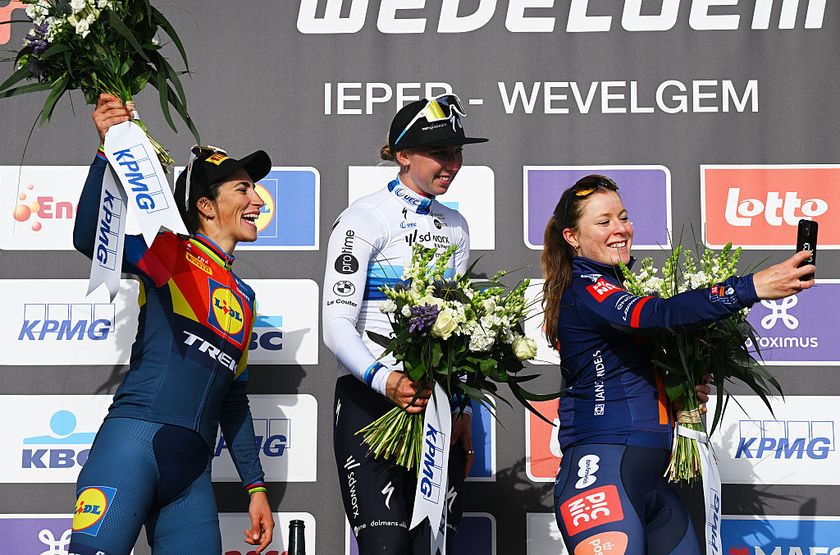Van Avermaet: I thought I would be stronger in the sprint
No broken bones for Hushovd in Omloop Het Nieuwsblad crash



Under normal circumstances, Greg Van Avermaet (BMC) would have expected to beat Ian Stannard in the two-man sprint that decided Omloop Het Nieuwsblad, but there is precious little that is normal about riding for 198 kilometres across cobbles and hills, and racing for almost five hours in the rain and cold.
The Omloop is ostensibly the first race of the Flemish spring, but the seasons turn reluctantly in this corner of Europe. More often than not, the peloton faces the final onslaught of winter on Opening Weekend, and so it proved on Saturday.
The temperatures were not as low as last year, but the continuous rain exacted a similar toll from tired bodies. Although Van Avermaet had the legs to go clear with Stannard with 16 kilometres to go, his teeth were already beginning to chatter in the cold and his strength ebbed away before the sprint in Ghent.
“During the final, I was really cold, but I thought I could be my best in the sprint," Van Avermaet said afterwards. "He surprised me and took two metres. My body didn't react anymore as I thought it would react. It is a disappointment because I thought I would be the strongest in the sprint.”
Van Avermaet was far from the only rider to suffer in the conditions and indeed he fared better than most. Pre-race favourite Tom Boonen (Omega Pharma-QuickStep), for instance, finished almost four minutes down on what he described as probably the coldest day of his career.
“I’m shivering, but mostly with disappointment,” Van Avermaet told Sporza as he waited forlornly to mount the podium. “I left a great opportunity behind me. If we did that sprint ten times, I would win nine times. In my head, I had already won the Omloop.”
It will be a source of both consolation and frustration for Van Avermaet that he rode so well prior to those final 300 metres. Always near the front on the race’s ten climbs, Van Avermaet and teammate Taylor Phinney helped to peg back the dangerous but disjointed move of Niki Terpstra, Lars Boom and Edvald Boasson Hagen in the final 30 kilometres. Then, on the run-in to Ghent, Van Avermaet sensed his opportunity and escaped with Stannard.
Get The Leadout Newsletter
The latest race content, interviews, features, reviews and expert buying guides, direct to your inbox!
“You know if you are in the break with Stannard he always keeps going until the finish," Van Avermaet said. "And normally I should be able to beat him in the sprint. But I think the weather conditions suited him better."
Stannard managed to usher Van Avermaet into first position ahead of the sprint, but BMC manager Allan Peiper did not believe that manoeuvre had any impact on the result. In a strongman’s race, the law of the strongest ultimately applied.
“I don’t think Greg made any mistakes. I think he rode a near-perfect race,” Peiper told Cyclingnews. “When it comes down to a finish like this, when there’s an uphill finish and a group twelve seconds behind, they’re not going to dally around. They both did what they had to do and the best man won. But Greg did an awesome race.”
In spite of the disappointment at losing out on the victory and the concern over the crash that forced Thor Hushovd to abandon, Peiper estimated that BMC’s glass was “three-quarters full,” highlighting Phinney’s contribution and 7th-place finish.
“This is the dress rehearsal for the big classics and this is what we had to get right,” he said. “Phinney rode an awesome final for Greg and Greg did everything he was meant to do, rode intelligently and was there at the end. That’s just the way it goes.”
Hushovd was the lone faller in an incident with 90 kilometres remaining, and immediately doubled over on the roadside clutching his arm as he awaited the team car. After abandoning, the Norwegian was taken to hospital, and BMC announced on Saturday evening that an x-ray examination confirmed that he had not broken any bones.
BMC also revealed that Taylor Phinney has been drafted into their line-up for Kuurne-Brussel-Kuurne on Sunday in place of the injured Manuel Quinziato.

Barry Ryan was Head of Features at Cyclingnews. He has covered professional cycling since 2010, reporting from the Tour de France, Giro d’Italia and events from Argentina to Japan. His writing has appeared in The Independent, Procycling and Cycling Plus. He is the author of The Ascent: Sean Kelly, Stephen Roche and the Rise of Irish Cycling’s Golden Generation, published by Gill Books.
